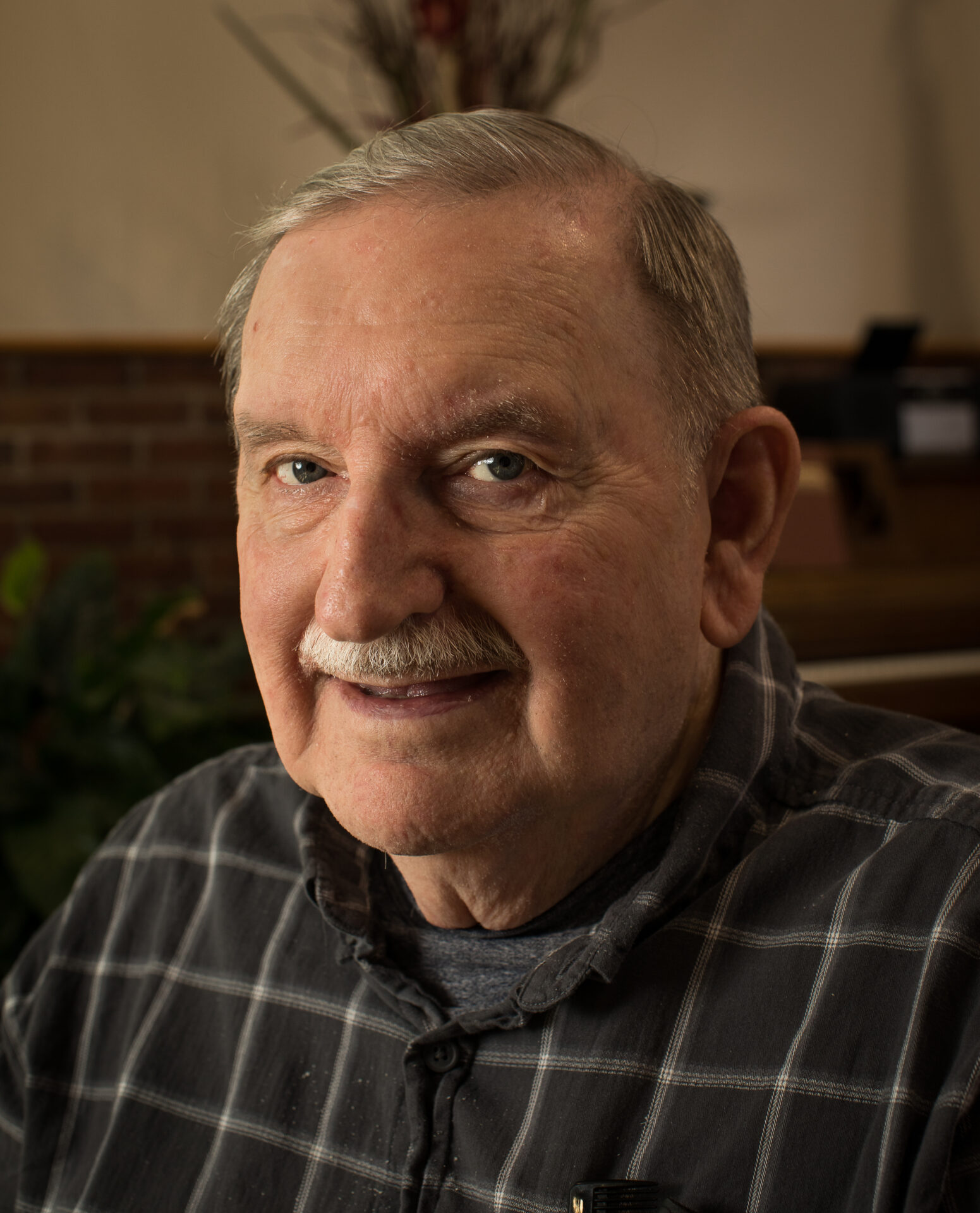Extras News
Mississippi Veteran Feature: Lee Rice, “Will You Still Love Me Tomorrow?”
By Gillian Littleton and Hope Stewart
UM Honors College Students
*Editor’s Note: These features were produced as a “Profiles in Courage” series by Mark K. Dolan’s freshmen seminar class in the honors college at the University of Mississippi. They were originally published in Circle and Square magazine, produced by Samir “Mr. Magazine™” Husni’s Magazine Innovation Center students.
The Mississippi State Veterans home may be where Lee Rice spends his days, but his heart stays on a dancefloor decades ago, twirling his sweetheart, Christina, as the Shirelles performed “Will You Love Me Tomorrow.”

Lee Rice. Photo by Mark K. Dolan.
“We met at a dance, a USO dance,” recalls Rice of the night in 1963 that he asked his future wife to dance at the urging of a fellow service member. He’d seen her earlier that day, at a drive-in Dairy Queen, the beginning of a romance that would last a lifetime.
Had it not been for his military service, he might have never met Christina, the woman with whom he would build his life. Whether it’s to the memory of his wife, or to his years in the service during the Vietnam War, this soft-spoken veteran stays humble and dedicated, two human qualities which gives his life meaning and have helped him weather life’s struggles.
Unswerving dedication insulated him from life’s traumas, especially those impacting his generation in the military, such as the loss of fellow servicemen in the jungles of Vietnam.
Living is a little like running an obstacle course, Rice says – and the will to survive is sometimes the only thing that gets a person through life – day by day, moment by moment.
Serving in the Air Force as an Airman First Class, he learned the values of pride, determination, and dedication that he would carry with him throughout his life. Though he never went to Vietnam, Rice and his company men were on one occasion expected to complete an obstacle course to prepare them for possible deployment.
With tasks that may have seemed trivial to some, more reminiscent of a Boy Scout camp than military action, the men learned through experience that in order to succeed, the had to have drive and courage, and to never give up.
One such formative experience involved a rope swing, a pond, and a cluster of shivering, drenched men. “Most of us guys during that time we were not very physically trained for that kind of stuff and just about everyone including myself fell in the pond of water–we didn’t make it across,” Rice chuckles.
At the time, the men were only able to see the tasks as preparations for war, however, they would in turn become preparations for life itself. The drive to make it across the rope swing, the desire to evade the freezing water, taught the men to not give up when faced with a challenge for which they were unprepared.
Experiences like these gave Rice the tools and the mindset to be successful in his life and marriage. His military pride was reflected in his steadfast presence beside Christina during their almost 50-year marriage, especially in the trying times of her last days. She faced an extended illness and he was there to care for her, until the end.
Growing up in rural Minnesota, Rice didn’t know what he wanted to do with his future. He couldn’t see past the dairy cows and beef cattle his family raised.
His path became clearer amid escalating tensions between North and South Vietnam. Young men were being drafted in record numbers in the mid-1960s. Rice faced a difficult choice, whether to enlist or wait for a draft notice in the mailbox.
Burning his draft card and fleeing to Canada, as some men did, was never an option, and he didn’t want to disgrace the service of his three uncles who served in World War II, so he enlisted. “I went ahead and went because I thought at least I would have a choice of the Navy or the Air Force,” he explains.
Rice feared jungle fighting in Vietnam. In joining the Air Force, he hoped to protect himself from the trauma that plagued so many of the men who returned from jungle combat, including relatives and friends.
His brother, Larry, however, did go to Vietnam, and the horrors of war changed the man.
“Being in Vietnam affected how he thought about things,” recalls Rice. “The first time I saw him when he came back was in Minnesota and he just wasn’t that outgoing or friendly. I think the war did that to him. He was a little standoffish and not part of the group sometimes.”
The war affected all of his brothers, those who are united to him by service and not blood, those who live in the State Veterans Home. The grief he feels at seeing how the war had changed his brothers remains seared in his mind and heart alongside the memory of Christina, a memory he will never forget.
“Of course you think about her. You don’t think about her all the time, but you do think about her. You can’t dwell on that because that’s part of your life and that’s gone, but you have memories and you’ll always have your memories. They’re always there.”
Rice is assured in his faith that someday the Almighty will bring him together once again with Christina and his brothers. Until that day, Rice does as the military taught him. “They teach you how to survive,” he says.





























